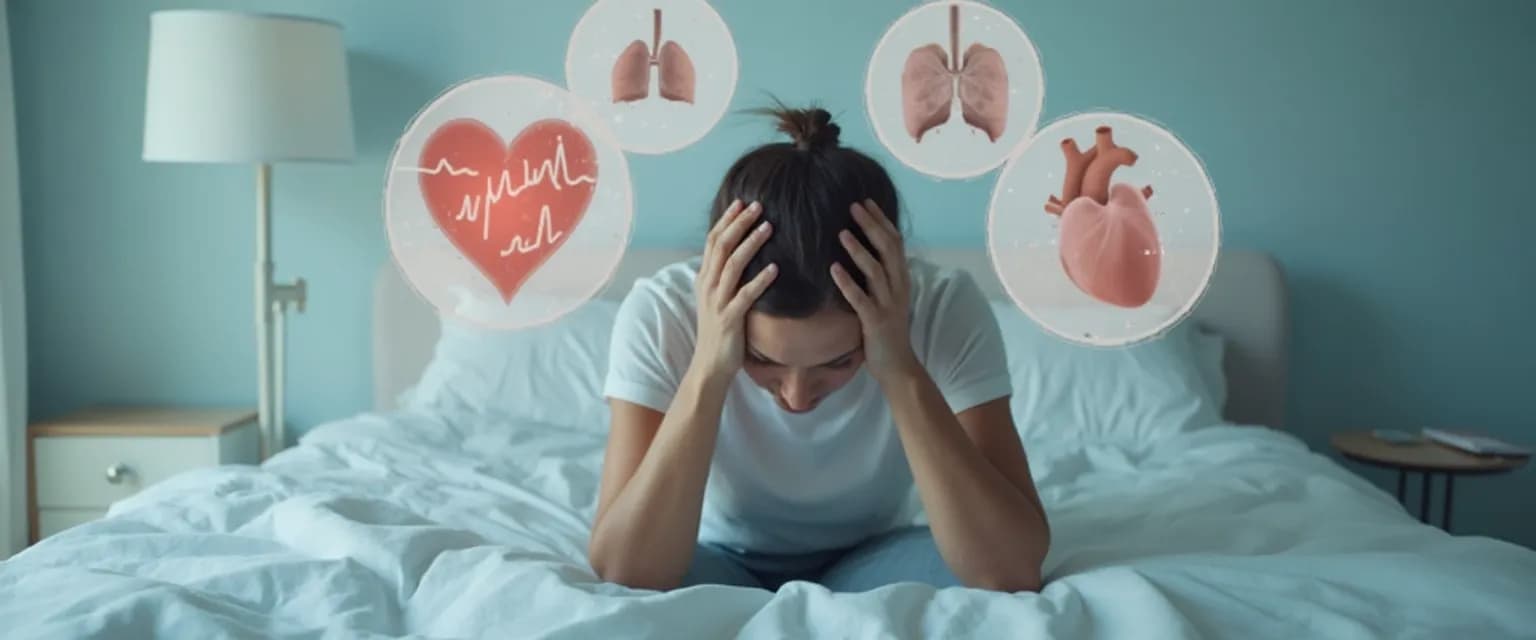7 Physical Anxiety Attack Symptoms You Might Mistake for Other Issues
Ever felt your heart racing like you've just run a marathon while sitting perfectly still? Or experienced sudden dizziness that made you wonder if something serious was happening? You're not alone. Anxiety attack symptoms manifest physically in ways that can be downright scary, often mimicking serious medical conditions. This confusion leads many people straight to the emergency room, convinced they're experiencing a heart attack or other life-threatening situation.
Your body's fight-or-flight response during anxiety doesn't just affect your thoughts—it creates real, intense physical sensations that deserve attention. Understanding these anxiety management techniques can help you distinguish between anxiety and other health issues, potentially saving you unnecessary medical visits and worry.
Let's explore seven common physical anxiety attack symptoms that are frequently mistaken for other conditions, and learn how to recognize them for what they truly are—your body's natural response to perceived threats.
Common Anxiety Attack Symptoms That Mimic Heart Problems
When anxiety strikes, your cardiovascular system jumps into high alert. Your heart races, pounds, or feels like it's skipping beats—sensations remarkably similar to cardiac issues. During an anxiety attack, your heart rate increases to pump more oxygen to your muscles, preparing you to fight or flee from perceived danger.
Chest tightness or pain is another alarming symptom. While heart attacks typically cause crushing pressure, anxiety-related chest discomfort often feels sharp, stabbing, or like a muscle strain that might shift position. The key difference? Heart attack pain usually worsens with physical exertion, while anxiety-related chest sensations may intensify with specific thoughts or situations.
To distinguish between the two, try this simple technique: take slow, deep breaths while gently relaxing your chest muscles. Heart-related symptoms typically don't improve with breathing exercises, while anxiety symptom relief often begins within minutes of controlled breathing.
Respiratory and Digestive Anxiety Attack Symptoms
Breathing difficulties rank among the most frightening anxiety attack symptoms. You might feel like you can't get enough air or experience hyperventilation—breathing too quickly and deeply. Unlike respiratory conditions like asthma, anxiety-induced breathing problems often improve with mindful breathing techniques rather than medication.
Your digestive system is surprisingly responsive to emotional states. During anxiety attacks, you might experience stomach churning, nausea, or even diarrhea. These symptoms result from blood flow being redirected away from your digestive system during the stress response. While similar to symptoms of food poisoning or stomach viruses, anxiety-related digestive issues often coincide with other anxiety symptoms and may improve once you feel calmer.
Try this: Place one hand on your chest and another on your stomach. Breathe slowly so that only your stomach hand rises. This diaphragmatic breathing engages your parasympathetic nervous system, helping distinguish and calm both breathing and digestive anxiety symptoms.
Recognizing Other Physical Anxiety Attack Symptoms
Dizziness and lightheadedness during anxiety attacks can be particularly disorienting. These sensations stem from changes in blood flow and hyperventilation, but can be mistaken for inner ear problems or low blood pressure. Unlike vertigo from ear disorders, anxiety-related dizziness often coincides with heightened emotions and improves as anxiety decreases.
Muscle tension manifests in various ways—from trembling hands to full-body shakiness or numbness in extremities. These symptoms occur because your muscles tense in preparation for danger. The key difference from neurological conditions is that anxiety-induced muscle symptoms typically affect multiple areas and fluctuate with stress levels.
Excessive sweating and hot flashes during anxiety attacks result from your body's attempt to cool down during the stress response. While similar to hormonal hot flashes, anxiety-related temperature changes usually coincide with other anxiety symptoms and specific triggers.
Managing Physical Anxiety Attack Symptoms Effectively
Understanding your body's anxiety response is your first step toward managing it effectively. When physical symptoms arise, try the 5-5-5 technique: identify 5 things you see, 5 things you hear, and 5 sensations you feel. This mindfulness technique interrupts the anxiety cycle and helps your brain recognize you're safe.
Progressive muscle relaxation works wonders for physical anxiety attack symptoms. Systematically tense and release each muscle group, starting from your toes and working upward. This technique signals your nervous system to deactivate the stress response.
When should you seek medical attention? If symptoms are new, severe, or accompanied by fainting, severe shortness of breath, or pain radiating to your jaw or left arm, get medical help. Otherwise, applying these anxiety management strategies often brings relief within 20-30 minutes.
By recognizing your unique anxiety attack symptoms pattern, you'll feel more confident distinguishing anxiety from other conditions. This awareness puts you back in control, reducing both the frequency and intensity of physical anxiety attack symptoms over time. Remember, your body's physical responses to anxiety are normal—and manageable with the right tools.




